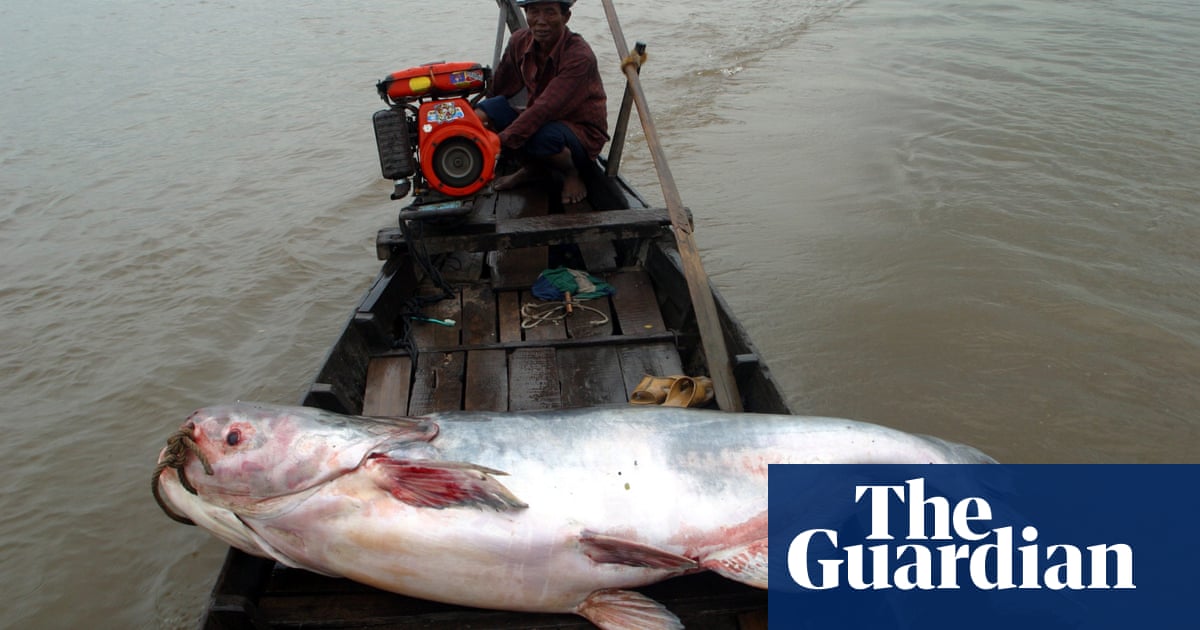- cross-posted to:
- climate@slrpnk.net
- cross-posted to:
- climate@slrpnk.net
Nearly a quarter of the world’s freshwater fish are at risk of extinction due to global heating, overfishing and pollution, according to an expert assessment.
From the large-toothed Lake Turkana robber in Kenya to the Mekong giant catfish in south-east Asia, many of the world’s freshwater fish are at risk of disappearing, the first International Union for Conservation of Nature (IUCN) red list assessment of the category has found.
Nearly a fifth of all threatened freshwater species are affected by climate change, from impacts such as falling water levels, shifting seasons and seawater moving up rivers. Of the assessed species, 3,086 out of 14,898 were at risk of vanishing.
The latest assessment also found that mahogany, Atlantic salmon and green turtles were increasingly threatened, according to scientific assessments, but there was good news about the saiga antelope, which has moved up from the critically endangered category to near threatened after the population increased by 1,100% in just seven years, mainly in Kazakhstan.



This is the best summary I could come up with:
From the large-toothed Lake Turkana robber in Kenya to the Mekong giant catfish in south-east Asia, many of the world’s freshwater fish are at risk of disappearing, the first International Union for Conservation of Nature (IUCN) red list assessment of the category has found.
Nearly a fifth of all threatened freshwater species are affected by climate change, from impacts such as falling water levels, shifting seasons and seawater moving up rivers.
To ensure the results of conservation action are durable, we need to decisively tackle the interlinked climate and biodiversity crises,” said the IUCN president, Razan Al Mubarak.
Big leaf mahogany, among the most commercially sought-after plants on the planet, is now classified as endangered after its numbers fell by 60% over the past 180 years due to unsustainable harvesting.
The Atlantic salmon, previously common and classified as a species of least concern, is now near threatened on the IUCN red list after its global population fell by 23%, having vanished from many rivers in the UK.
The fish, which lives in both fresh and saltwater, has been affected by widespread habitat loss, global heating and dams that block access to breeding sites.
The original article contains 595 words, the summary contains 193 words. Saved 68%. I’m a bot and I’m open source!